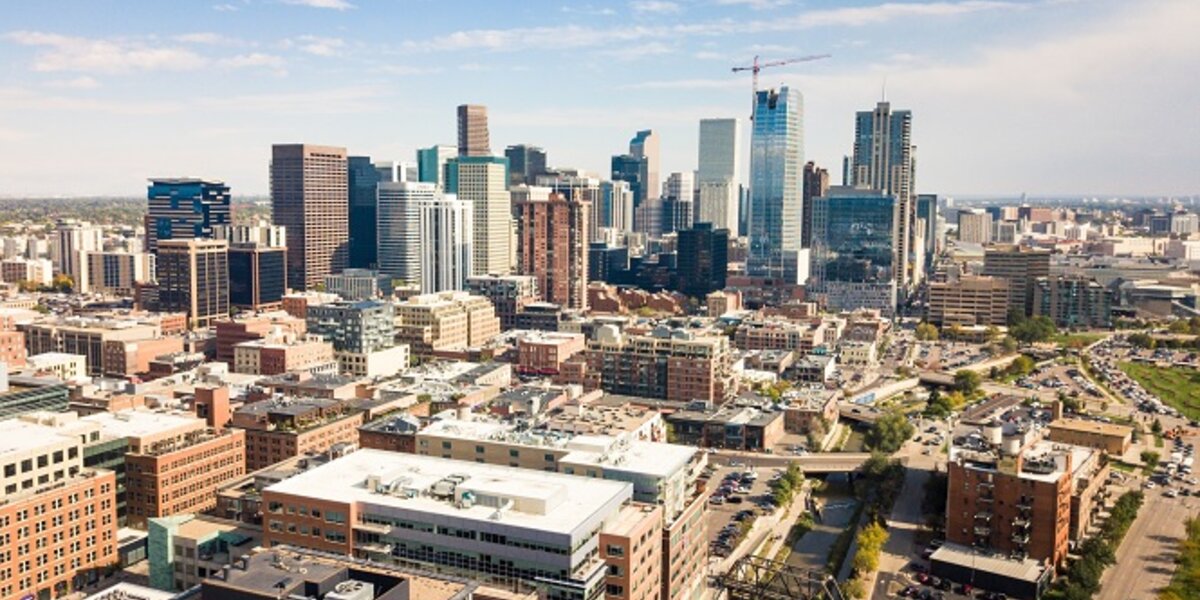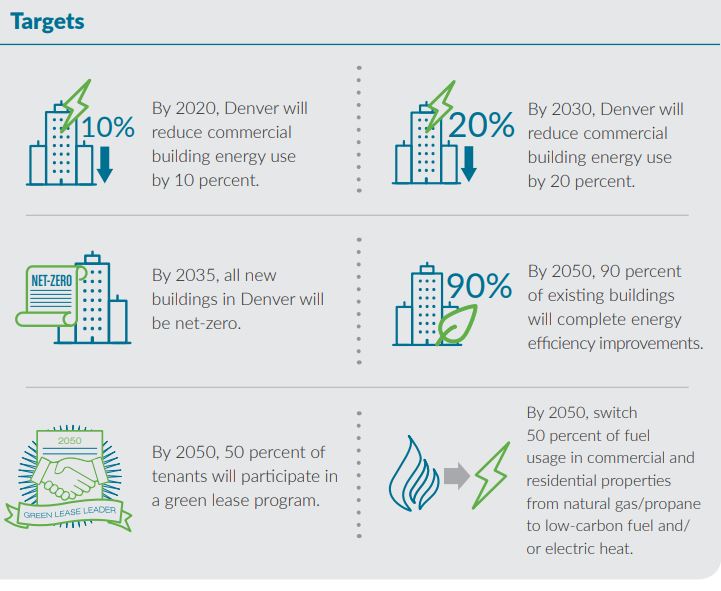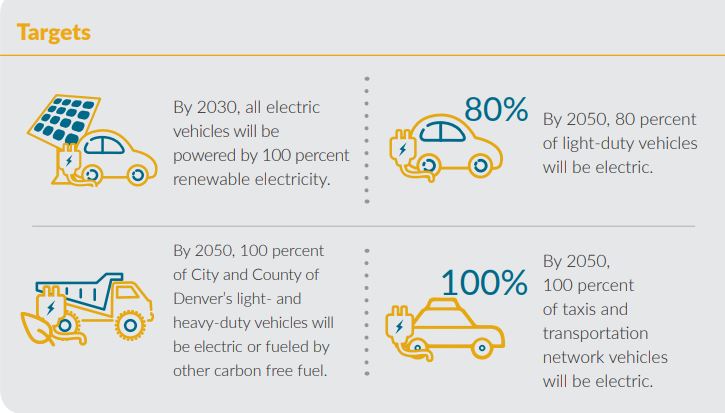Denver Aims to Reduce Its Carbon Emissions by 80%. Energy Efficiency Will Help It Get There.
Let's Save Energy
Alliance to Save Energy's Blog
Denver Aims to Reduce Its Carbon Emissions by 80%. Energy Efficiency Will Help It Get There.

The mile-high city is known for its 300 sunny days per year, thriving arts and culture scene, ski-slope adjacent location and impressive brewery scene. Another thing to add to the list: noteworthy commitments to energy efficiency. Last month, Denver Mayor Michael Hancock announced the 80x50 Climate Action Plan (80x50 CAP) to reduce carbon emissions 80 percent below 2005 levels by 2050. One of the key ways that the city will reach this ambitious goal is by investing in energy efficiency technology and programs.
Ambitious Energy Goals
Denver is poised to feel greater climate impacts, such as increased frequency of extreme weather events, reduced snowpack and earlier snowmelt. The city is also currently ranked third in the nation for the worst urban heat island effect – the impact of human land uses, like paved areas, that warm the city area. Because of this effect, Denver gets up to 23 degrees hotter on average than nearby rural areas. In an acknowledgment of these climate realities, the city has built on its 2015 Climate Action Plan to outline even more ambitious energy goals in the 80x50 CAP. This plan has drawn on city leadership as well as community input; Denver residents were able to add their two cents through a public survey, allowing the city’s Department of Public Health & Environment to incorporate the priorities of residents into climate action goals. The 80x50 CAP promotes energy reduction and renewable energy targets, including a pledge for Denver to transition to 100 percent renewable electricity by 2030. While this is an impressive goal, Tom Herrod, a climate and policy analyst for the City and County of Denver, notes that “equally if not more important [than the 100 percent renewable electricity target] are our strategies to make energy efficiency a critical first step.”
Using Energy Efficiency to Reach the 80x50 Goal
Optimizing energy efficiency in buildings is one of the core components of the 80x50 CAP, together with decarbonizing the electricity grid, enabling next generation mobility and improving waste management. The city has prioritized these four action areas based on a McKinsey & Company report identifying them as the best ways to maximize energy savings and emissions reductions.
Denver has already made great strides toward energy efficiency – it ranks ninth in the nation on energy efficiency measures out of 51 large cities. The city has earned this rating through programs like Energize Denver, which aims to reduce energy consumption of commercial buildings and requires large buildings to make public annual energy use benchmarks. Through the 80x50 CAP, the city will continue Energize Denver while adding substantially to energy efficiency goals and programs. The plan outlines a series of energy efficiency goals, which will put the city on track to reduce commercial building energy use by 50% by 2050.
80x50 Clean Action Plan Energy Efficiency Targets
To work toward building efficiency targets, Mayor Hancock has pledged that Denver will:
- Adopt the 2018 International Energy Conservation Code (IECC);
- Establish a home energy rating for single-family buildings so that owners, renters and buyers can evaluate a home’s efficiency and operating costs;
- Establish minimum energy efficiency standards for rental properties; and
- Establish a green lease program that will provide incentives for high-performing, LEED and net-zero buildings, and provide training and outreach to drive investments in energy efficiency.
The Road to More Efficient Transportation
In addition to building efficiency improvements, the 80x50 CAP aims to increase the efficiency of transportation in Denver.
80x50 Clean Action Plan Electric Vehicle Targets
To facilitate the transition to more efficient transportation, Denver aims to:
- Create bus rapid transit on existing streets and advocate for and/or create a financing mechanism to support longer range options;
- Add a tax to local gasoline sales and/or initiate a carbon tax to help fund transit;
- Partner with car share companies to provide access to EVs and make subsidized memberships available for low-income households;
- Create building codes that require charging opportunities at multifamily units and workplaces;
- Provide EV charging infrastructure in all city buildings and support EV workplace charging programs; and
- Support electrification of delivery trucks and other heavy-duty vehicles.
Making the Goal a Reality
Reducing carbon emissions by 80% by 2050 is an ambitious goal. But Denver, like many other leading cities, has realized that with energy efficiency and other tools, it can get there. Building and transportation efficiency goals put Denver on the right path toward significant reductions in carbon emissions and energy use.
STAY EMPOWERED
Help the Alliance advocate for policies to use energy more efficiently – supporting job creation, reduced emissions, and lower costs. Contact your member of Congress.
Energy efficiency is smart, nonpartisan, and practical. So are we. Our strength comes from an unparalleled group of Alliance Associates working collaboratively under the Alliance umbrella to pave the way for energy efficiency gains.
The power of efficiency is in your hands. Supporting the Alliance means supporting a vision for using energy more productively to achieve economic growth, a cleaner environment, and greater energy security, affordability, and reliability.





